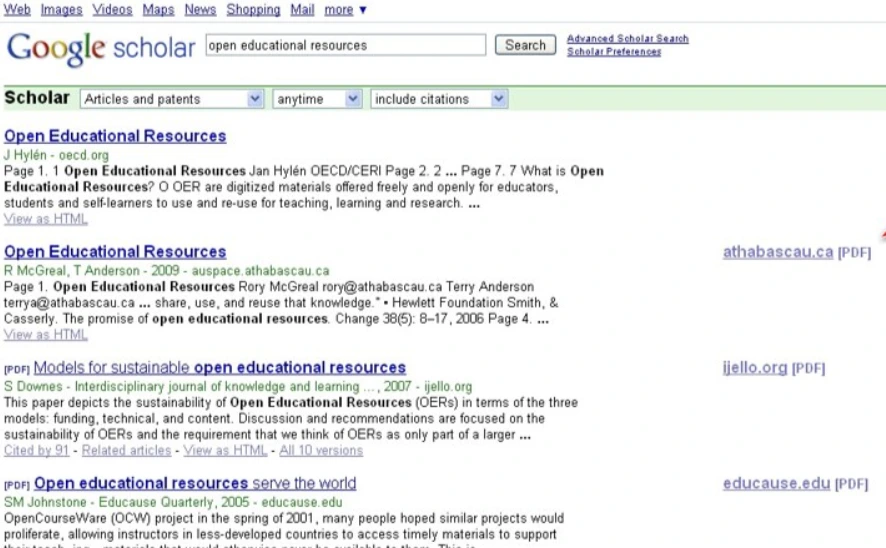
image by Doug Belshaw, from Flickr
AI Revolution Puts Google Scholar’s Legacy To The Test
Google Scholar turns 20, but AI-powered competitors with advanced summarization, contextual searches, and open-access features increasingly challenge its dominance.
In a Rush? Here are the Quick Facts!
- Google Scholar celebrates 20 years as a leading scholarly search engine.
- AI-driven platforms challenge Google Scholar’s dominance with context-aware search algorithms.
- Google Scholar integrates AI but lacks AI-generated summaries for multi-paper queries.
As Google Scholar marks its 20th anniversary, it remains a cornerstone for millions of researchers globally. However, as noted in the scientific journal Nature, emerging AI-driven tools are reshaping how scientific literature is accessed, analyzed, and utilized.
Since its debut in 2004, the platform’s ranking system, which emphasizes relevance and citation counts, along with features that guide users to free versions of articles, has cemented its dominance in the academic community, notes Nature.
However, the rise of AI tools is challenging this supremacy. Platforms like Semantic Scholar and Consensus leverage large language models to summarize papers, highlight key citations, and even answer research-driven questions.
Semantic Scholar, for example, uses AI to extract readable summaries and identify critical references. Similarly, Consensus applies advanced search algorithms to refine results based on specific research questions.
These innovations cater to a growing demand for tools that not only locate information but also contextualize and synthesize it.
Aaron Tay, an academic librarian at Singapore Management University, highlights the shifting preference for AI-powered platforms, as reported by Nature.
While Google Scholar remains his primary tool, he acknowledges the growing appeal of alternatives like Undermind, which deploys agent-based searches that adapt dynamically to the content they process. These tools often deliver more refined results, albeit with a longer processing time.
In response, Nature reports that Google Scholar has integrated AI into its own offerings. Recent updates include AI-generated article outlines within its PDF reader and semantic search capabilities that interpret the intent and context behind queries.
Despite these advancements, the platform stops short of providing AI-generated overviews for complex searches, a feature now standard in Google’s general search engine, says Nature.
The entry of open-access databases like OpenAlex also underscores the push for transparency and accessibility in scholarly searches. Unlike Google Scholar, OpenAlex allows bulk data downloads, a crucial feature for bibliometric analyses, says Nature.
It must be noted that critics argue that while AI can summarize scientific literature, it falls short in conducting thorough, gold-standard reviews.
AI’s limitations spark concerns about accuracy and transparency, as large language models (LLMs) sometimes produce content lacking context or misrepresenting data. They often draw from unreliable sources without adequately evaluating information quality.
While Google Scholar’s entrenchment and scale make it difficult to dethrone, AI-driven competitors are reshaping expectations. As scholars navigate these evolving tools, the future of research may hinge on how well platforms balance scale, accuracy, and adaptability in the AI era.


 Previous Story
Previous Story

 Latest articles
Latest articles 

Leave a Comment
Cancel